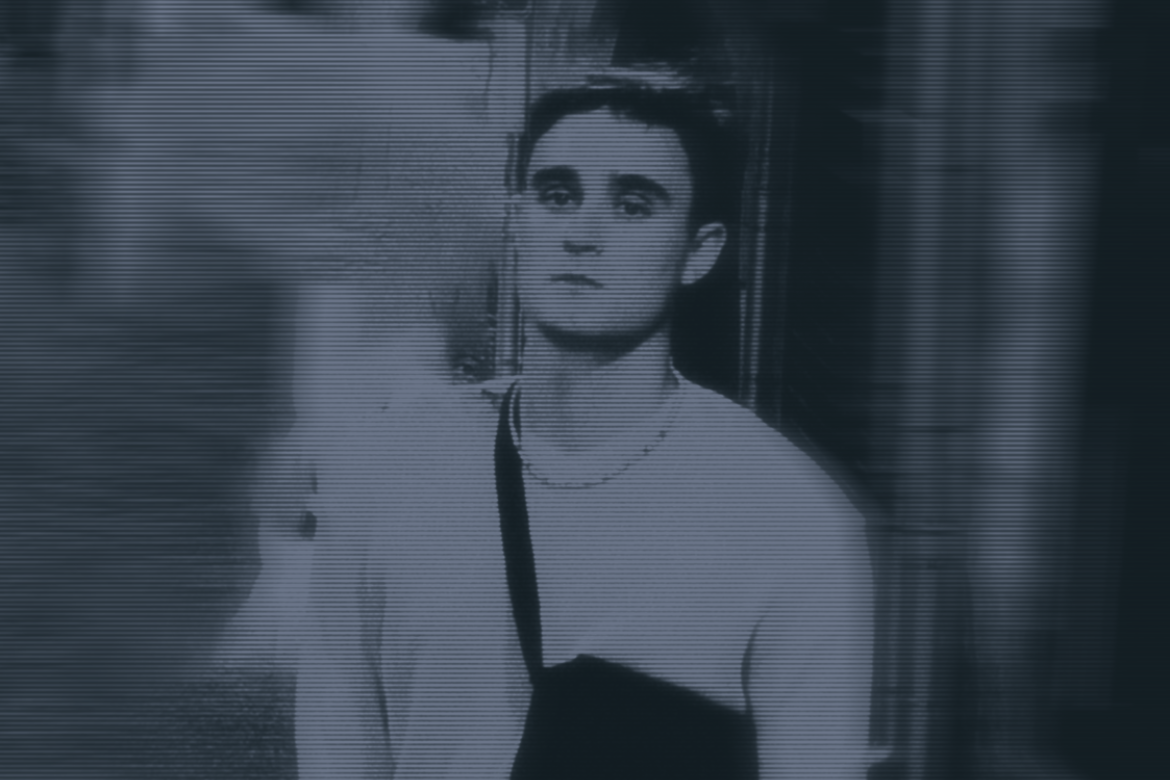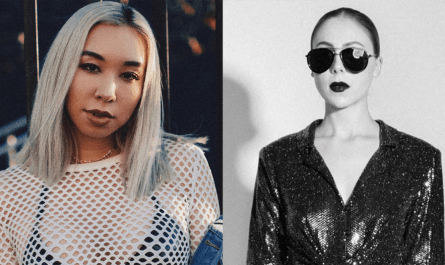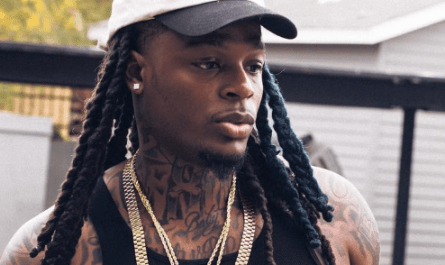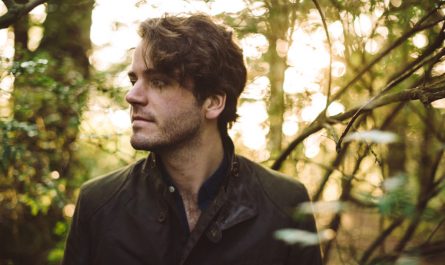It’s 2am. Cigarette smoke fills the greenroom. The air reeks of Jägermeister and Redbull as dubstep and drum&bass loudly penetrate through a half-open door. This was the situation in which I met Voliik in person. A classic ‘club moment’ which, however, in retrospect took on a romantic feeling, as only a few weeks later the world went on lockdown and the Covid-19 saga began. Although he didn’t end up playing, that night I had the pleasure of chatting with this Danish giant, not after initially mistaking him for VARI. Between my mediocre English and his yawns (he had come straight from the airport to the event) I distinctly remember that we ended up talking about wave, with Voliik suggesting that I take a look at “this guy, Juche”. It was just an early morning small talk, but I was hooked, and since then he has won all my esteem and admiration.
In the following years, I had the pleasure of sharing some more time with Alex through sporadic and hilarious impromptu video calls where we talked about all things music, life, and beyond. I learned that he is a lovely and kind person with a charming way of talking about his passions and beliefs. Besides of course being a creative mastermind, a natural-born musical storyteller, and a first-class technician, his original compositions are some of the most sophisticated, detail-rich, and heavy releases in my collection. He also belongs to the handful of artists who successfully remixed classics from Deadmau5 and Eric Prydz.
The guest mix perfectly showcases Voliik’s sonic identity and does an incredible job of taking us deep into his raw and uplifting dungeon. In the interview, we start reminiscing about Voliik’s beginnings in Denmark and we go all the way through his recent debut in the video games world, touching upon what it might mean to be a producer in 2024 and, of course, the electro house “revival.”
First and foremost, tell us what the underlying theme of this guest mix is. What should listeners expect?
The theme is all about energy and what I want to bring to my live shows. It includes a lot of early 2010s tracks, as some of the best songs came from that era and would still crush it live today. Of course, it also features some of my released and unreleased songs.
Voliik as a project has been around for around six years now. Can you give a recap of your journey as Voliik since its inception?
Since I started releasing Voliik songs in 2018, a lot has changed. Initially, I had no expectations or goals, just experimenting with FL Studio since I was 15, influenced by Electro House and Dirty Dutch artists like DJ Antoine, Ton!c, Vengeance, and Joel Fletcher. However, hearing Porter Robinson’s remix of ‘We No Speak Americano’ in 2010 inspired me to create similar music. My jaw just dropped when I heard that remix. It took time to get decent, and by 2018, I was releasing music for fun and staying up late to watch major festival live streams. Things changed for me when k?d played a remix I made of his song ‘Zero One’ with Slooze during the Tomorrowland 2018 livestream. That’s when I started dreaming of playing my own songs live. Connecting with people worldwide through my music was surreal. I suddenly had friends across the globe, adding much more meaning and purpose to Voliik. A significant and surreal moment came in 2019 when Porter Robinson played my song ‘Trust’ at Ultra Korea, showing me how far I’d come. However, 2020 through 2023 brought challenges with COVID-19, health issues, getting hacked, and losing my job. To support myself, I started studying and will soon have a Bachelor’s degree in Sound Design, specializing in Sound Engineering for Video Games. Now, with fresh energy and inspiration from working in the games industry, I can focus on rebuilding Voliik and setting new goals.
I believe everything in the world comes in cycles, especially music. Trap and hybrid trap have had their revivals, so why shouldn’t electro?
Electro House is a term that pops up a lot going over your history and, more obviously, while listening to your music. We can say it’s been a constant in your story, way before the current buzz. When did this love start? Do you think in the current mainstream scene there’s space for an “electro” revival?
I LOVE Electro House. It’s been my top genre since I got into electronic music. Off the top of my head I think I started with DJ Antoine, then moved on to old Avicii, old Boys Noize, Deadmau5, Mord Fustang, Charlie Darker, Gregori Klosman, Far Too Loud, Hardwell, Maison & Dragen, Dada Life, Knife Party and many more. But the cream of the crop for me is Porter Robinson and the Danish legend Mikkas. There’s something so satisfying about the fast tempo and complex basslines with digestible rhythms that always give me goosebumps. It gets even crazier when there’s a melodic trance-like break and a melodic second drop—just woooow. There’s absolutely space for an electro revival. I believe everything in the world comes in cycles, especially music. Trap and hybrid trap have had their revivals, so why shouldn’t electro?
For the culture, name three electro classics everyone should know (and explain why).
VERY hard to just name three, but here’s a shout off the top of my head. Porter Robinson ‘Say My Name’: such a classic! Everything from the kickloop intro to the catchy melody, the pluck melody in the break, and all the crazy details in the drop and fills made the song so fresh and unique. The song’s popularity also contributed to the mainstream success of electro house as a genre. Emma Hewitt ‘Rewind’ (Mikkas Remix): one of the best remixes ever made! This remix is so important because it blends melodic and high-energy elements in the perfect way, showcasing Mikkas’s signature top-tier production quality. The intricate vocal details in the drops and the powerful emotional impact of the distorted melody in the second break encapsulate everything great about electro house. Spencer & Hill ‘So Dance’: this song was ahead of its time. This song, along with some of their other tracks, defined and popularized the key elements of the electro house genre. Its energetic pacing, punchy and detailed basslines, and catchy hooks set the standard for what others would try to replicate in electro house. It’s an absolute classic.
How was building a project like Voliik in Denmark? Was your local culture a huge influence and a resource or did you find your reference points on web communities?
Building a project like Voliik in Denmark has been challenging. The local scene for electronic music here is quite limited; while Denmark once had a vibrant electronic music scene with international artists performing at small venues, that has dwindled significantly. There’s some interest in techno and tech-house, but genres like bass, electro, dubstep, and trap are virtually nonexistent, which can be demotivating. I’ve often felt like an outcast locally, but the internet has reassured me that my music has a place. My primary influences and resources have come from online communities, especially SoundCloud and Instagram. These platforms have been crucial for connecting with artists and producers globally, and I’m grateful for the incredible people I’ve met digitally. The online community has been vital in shaping my sound and growth as an artist. Connecting with like-minded individuals from around the world has been an amazing experience, especially given the limited local scene in Denmark.
Keep focusing on what you can control and celebrate the progress you make, no matter how small.
In a recent tweet, you expressed the difficulty you’ve had finding the motivation to continue with Voliik over the past few years. You mention personal motivations but I also find points in common with what other artists have previously shared on social media. Do you think there is indirect pressure given by the standards of the music scene and industry?
Absolutely, there is significant indirect pressure from the standards of the music scene and industry. We’re in an era where there’s a constant demand for new content—whether it’s music, tweets, reels, TikToks, or photos. This relentless need to stay relevant, keep up with trends, and continuously produce content can be overwhelming, especially if music isn’t your main gig. On top of this, personal challenges can compound the struggle. Over the years, I’ve faced numerous difficulties and lost my core support system. Many of my closest friends and fellow artists have disappeared from social media or stopped their musical careers, which made returning to the scene feel like starting over alone. Social media often amplifies this feeling of isolation by showcasing only the curated highlights of others’ successes, making one’s own struggles seem more pronounced. Balancing industry expectations with personal well-being is a challenge many artists face. It’s okay to not like this pressure and to not want to feed into it. Success in today’s music industry often seems to require more than just being a talented artist—being active on social media is almost essential. However, many artists, including myself, struggle with this because we are sensitive and creative individuals who can easily feel overwhelmed. I’ve been working on finding a balance by stepping back and appreciating the smaller successes, such as simply being able to create and release music. Consistent music production and release have been challenging for me in recent years, so being able to do so now feels like a major achievement. Success is personal and unique to each individual; celebrating small accomplishments and prioritizing your happiness and well-being is crucial. Ultimately, if you face obstacles that are beyond your control—like a full-time job, health issues, or personal problems—it’s important to be kind to yourself. Keep focusing on what you can control and celebrate the progress you make, no matter how small.
You announced you recently started a music-related job in the world of video games. What are you doing and how did it happen?
I recently began working in Game Audio, specializing in sound design, technical audio engineering, music composition, and voice acting. This opportunity arose from my Bachelor’s degree in Sound Design. I’ve just finished an internship as a sound designer at a video game company, which was an incredible experience. Additionally, I’ve co-founded a company with a friend that offers comprehensive audio services for video games. I’ll be sharing more about these projects soon, but there may or may not be Voliik music in some new games
How the skills you developed as Voliik are helping you with this new experience and, vice versa, how is this experience helping you grow as Voliik?
The skills I’ve built as Voliik have been really useful for my work in game audio. Creating sounds and music for Voliik taught me how to craft unique sounds and add special details, which translates directly into designing audio for video games. I’ve learned how to make dynamic sound systems and get creative with sound, which has improved my technical skills. On the flip side, working in game audio has helped me a lot with Voliik. I’ve picked up new techniques for sound design, discovered weird new plugins and mixing tricks, all of which have made my music production more efficient and structured. The experience has sped up my workflow and helped me tackle challenges in my music projects with new approaches. So, it’s been a great exchange of skills between both areas, benefiting both my game audio work and my music as Voliik.
Must-do question at this point, what are your favorite video game soundtracks?
When it comes to video game soundtracks, NieR: Automata is always my top pick. Keiichi Okabe’s work on this game is phenomenal. The music is incredibly immersive and truly stands out as one of the best soundtracks ever created for a game. It’s so powerful that I remember feeling captivated by the menu music alone, it gave me goosebumps. Wolfenstein: The New Order by Mick Gordon is another favorite. His soundtrack is intense and impactful, with a raw, unsettling energy that really gets under your skin. Mick Gordon’s ability to create such a visceral experience with his music is something I deeply admire. Finally, The Elder Scrolls V: Skyrim has a special place in my heart. Jeremy Soule’s soundtrack is both nostalgic and inspiring. I spent countless hours exploring the game’s world, often just walking around to soak in the music. It has a way of making the game’s fantasy world feel real and magical.
Now let’s talk about your music. Tell us about your latest releases, ‘NOX’ produced with ELAC and the collab with Lizdek, ‘KNOCK,’ recently featured in his brand new EP on Ekali’s Awakening Records.
For ‘NOX,’ I worked with ELAC, and it was an awesome experience. We’ve been chatting for about two years, bonding over FL Studio, electro house, and Melbourne bounce. I started the track and sent the stems to ELAC. He made some big changes, which got me inspired to rework the song when he sent it back. The whole process was really fun, and I’m super happy with how it turned out. Working with Lizdek on ‘KNOCK’ was also a great time. He’s been incredibly supportive of my comeback, and our collab went smoothly and quickly. I sent him the initial idea for the first drop and some vocal fills, aiming for a mix of Big Room house and electro house vibes. He asked for the stems and, within 24 hours, returned an amazing final version. It was incredible to see our ideas come together so seamlessly and fast. Both of these projects were fun, and I’m excited for the others collaborations I have in the works. Make sure to check out Lizdek’s new EP and ELAC’s latest release—they’re both awesome!
I’m taking a more relaxed approach: creating music I love, having fun, and releasing it whenever it’s ready.
In the aforementioned tweet, you also express your desire to return to your roots. What will this mean in terms of releases? What should we expect?
Returning to my roots means going back to the basics of what made Voliik special when I first launched in 2018—making and releasing music simply because I enjoy it, without setting overly high expectations. After everything I’ve been through, diving back in with intense goals would be unfair and unrealistic. Instead, I’m taking a more relaxed approach: creating music I love, having fun, and releasing it whenever it’s ready. Right now, I’m not connected to any labels, and that’s okay. What matters is that I’m making music and enjoying the process. You can expect a more carefree and spontaneous Voliik, with regular releases of tracks that I’m passionate about. I’m also taking on the task of creating my own cover art, which is a new challenge for me but adds a personal touch and flexibility to my releases. While I still have dreams and goals for Voliik—like playing shows and meeting the amazing people I’ve connected with online—my main focus right now is to get back to creating and sharing music. Collaborating with other artists and having fun with the music I make is my top priority.
Voliik FUXWITHIT Guest Mix Tracklist
Voliik x FERA – Omen
Voliik – ID
Me and Cosmic Saturn (Mashup)
Lucky Date – Freak
Dj Isaac – Face Down, Ass Up (TON!C Bootleg)
Flowdan, Lil Baby, & Skrillex – Pepper (Voliik Remix)
gyrofield – Superheat
Voliik x VARI – ID
Voliik x Blood ID – ID
Fera – ID
DJ Bam Bam, Hatiras – Thrill Her
Mercer – Bangla vs The Prodigy – Breathe (Mashup)
Desembra – Bust
Baauer & Boys Noize – Fire Like This (Topi Remix)
VARI – ID
Stoltenhoff – Boozy
FERA – ID
Voliik x CZER – ID
Deadmau5 – Raise Your Weapon (Voliik Remix)
Porter Robinson – Unison (Mikkas Remix)
Voliik – Reanimate
Stoneface & Terminal – Skyfall
Porter Robinson – Spitfire (Voliik Remix)




